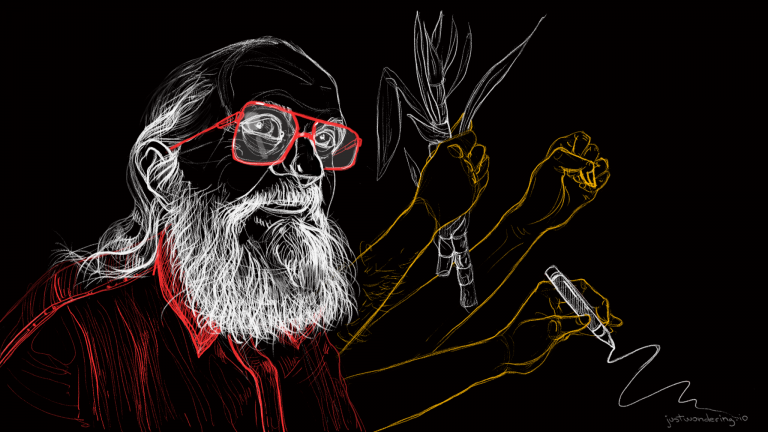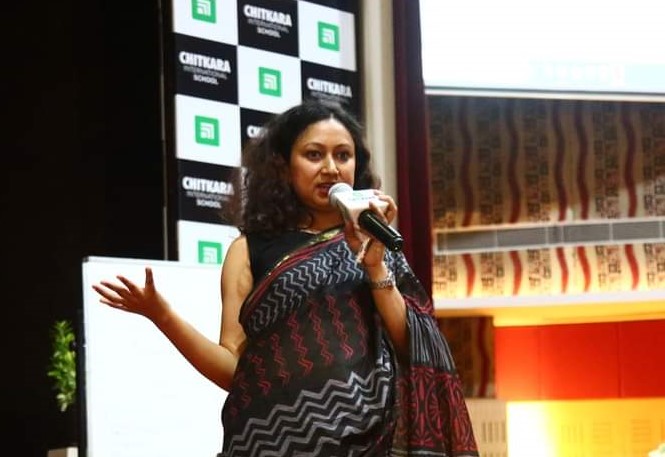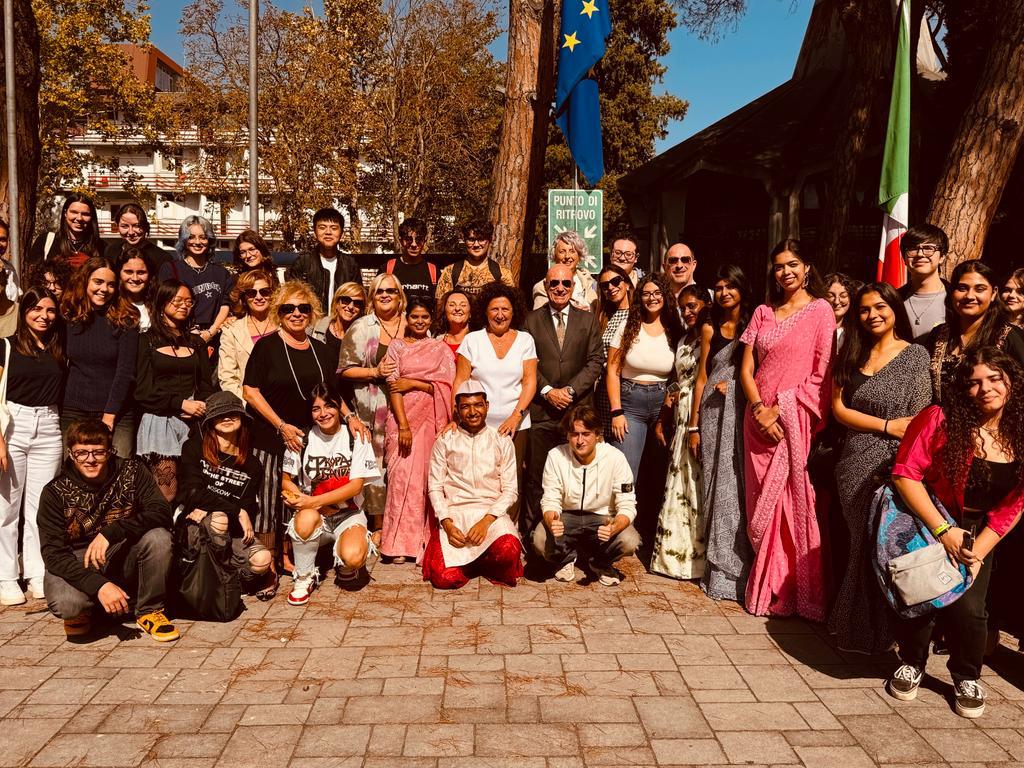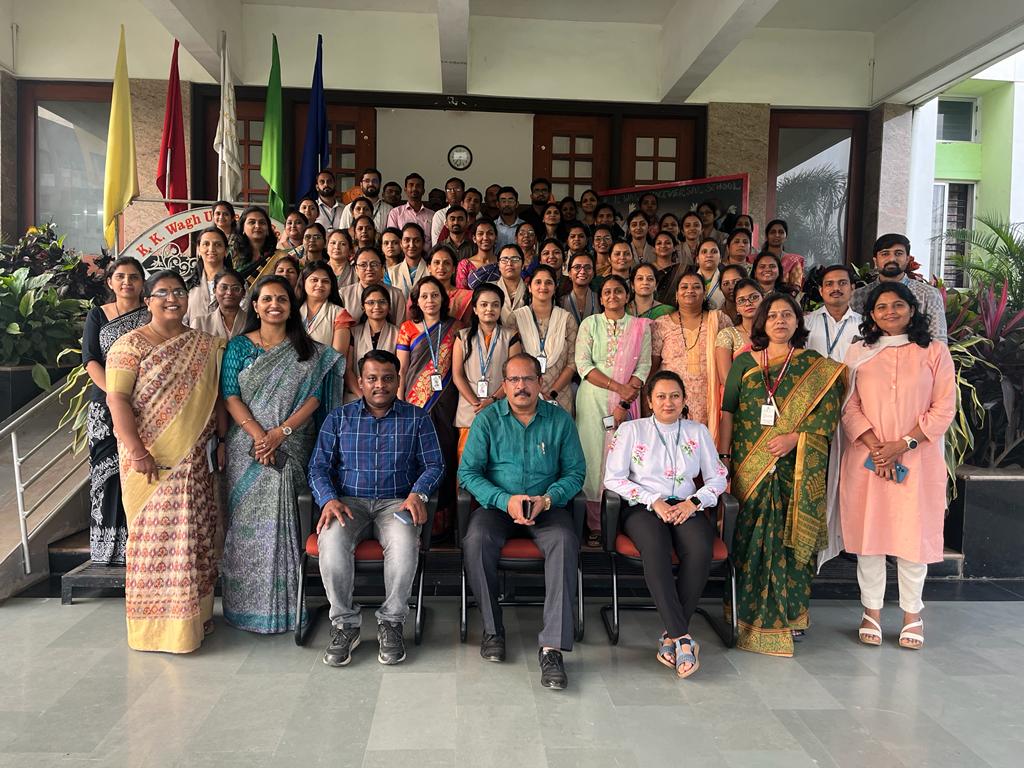Paolo Freire - Pedagogy of the oppressed
In many Indian classrooms, education is seen as an act of depositing the content with teacher as depositor and students as depositories. The teacher narrates the content in front of the students to fill the students with the content and the job of the students is to memorize that content. The teacher presents the content as static, motionless and as something that has to be memorized. This is the narrative character of teacher-student relationship, involving subjects (teachers) and listening objects (students) (Freire, 1993).
Narration encourages students to memorize the recounted knowledge automatically. It transforms them into “containers,” or “receptacles” that the instructor must “fill.” The evaluation of the teacher is based on how better the teacher is able to fill the container (students) and how better the students are able to memorize the dead and static content. This is also called the banking model of education, where students are considered to be depositories to be filled with the deposits given by the teachers.
Implicit in this idea of education is the duality between human beings and the world, it is considered that a person is only in the world and not with the world and that individual is a spectator, not a re-creator of knowledge.
This is a sort of narration sickness since it imposes complete ignorance on students, which is also a feature of oppressive ideology. The more students work to preserve the deposits entrusted to them, the less critical consciousness they develop as a result of their participation in society (Freire, 1993).
This narrative model assumes the inability of the students to engage with the world and with the content and tries to make them adapt to the situation by delivering ready-made answers. It assumes that in the classroom, the teacher is the one who knows and the students are like empty boxes to be filled with knowledge, this point towards the implicit power relation between the teacher and the student. This model presupposes that knowledge is a gift bestowed by people who consider themselves knowledgeable to others who they perceive to know nothing. It assumes a passive role of students and considers them manageable, adaptable beings. The more they become adapted to the current social reality, the better they become for the smooth functioning of the society without questioning the socio-political-economic inequalities.

This model presupposes that knowledge is a gift bestowed by people who consider themselves knowledgeable to others who they perceive to know nothing. It assumes a passive role of students and considers them manageable, adaptable beings. The more they become adapted to the current social reality, the better they become for the smooth functioning of the society without questioning the socio-political-economic inequalities.
This notion is well suited to the oppressors’ goals, as their serenity is dependent on how well people fit into the oppressors’ reality and how rarely they question it. The oppressors’ interests are in “changing the oppressed consciousness, not the circumstance that oppresses them.” The more oppressed people can be persuaded to conform to their condition, the easier it will be to control them. It turns pupils into receptive objects using a mechanistic, static, naturalistic, specialized perspective of awareness. It tries to control women’s and men’s thinking and actions, causing them to adjust to the world and stifling their creative potential. There is no space for the students to explore the content on their own, they have to memorize the prescribed content while engaging with it.
This idea of narration sickness and banking model is against the very idea of “education”, which is the humanization of human beings for liberation. Authentic liberation does not require another deposit in men. Liberation is praxis: men and women acting and reflecting on their society in order to change it (Freire, 1993). Implicit in the pedagogy for humanization is the idea of “Dialogue”.
Through dialogue, the teacher-of-the-students and the students-of-the-teacher no longer exist as a result of interaction, and a new word emerges: teacher-student with students-teachers (Freire, 1993). The teacher is no longer simply the one who teaches; she is also the one who is taught in conversation with the students. Through problem-posing education, people learn the ability to critically evaluate how they live in the environment in which they find themselves; they grow to understand the world not as a static reality, but as a reality in flux, in motion. They develop their own perspective of looking at things and learn to engage with each other as a creative exercise for the creation of knowledge.

Banking education resists dialogue; problem-posing education regards dialogue as indispensable to the act of cognition which unveils reality. Banking education treats students as objects of assistance; problem-posing education makes them critical thinkers. Therefore, this narration sickness is against the very idea of education for humanization.
By Nidhi Waldia

Nidhi is currently working as the Innovation Manager in Savitribai Phule Pune University under the EDUREFORM Project. She likes to read and write about the topics related to Education, intersectionality and social justice.






Nisha valvi
Interesting article
Islam Berkemajuan
My sincerest thanks for the exceptional information you’ve shared on this website. Your commitment to educating and empowering others is truly remarkable. I appreciate the diverse range of topics covered and the depth of knowledge shared. Hats off to the team behind this fantastic resource! See ya! ID : CMT-BSX9UTSMGMN4KPKLI7
Islam Berkemajuan
I wanted to take a moment to express my deepest gratitude for the invaluable knowledge I’ve gained from this website. The information you’ve provided has been life-changing, and I’m truly grateful. The articles are not only informative but also engaging, making learning a truly enjoyable experience. It has become an invaluable resource for me, and I appreciate the effort put into creating such a fantastic platform. Thanks
Islam Berkemajuan
I wanted to express my heartfelt thanks for the enlightening and thought-provoking content on this website. It has been an invaluable source of information, and I’m deeply grateful for your generosity. It’s evident that they have a deep understanding of the subject matter and a passion for sharing knowledge. I appreciate the depth and breadth of topics covered, making it a go-to resource for learning and expanding my knowledge. Thanks for the informations!
Islam Berkemajuan
I wanted to express my heartfelt thanks for the enlightening and thought-provoking content on this website. It has been an invaluable source of information, and I’m deeply grateful for your generosity. The information provided is reliable, up-to-date, and presented in a user-friendly manner. Thank you for sharing such valuable information and contributing to our growth. Sankyu! ID : CMT-18E243L9APFEEAD9D4
watch this movie now
I think the admin of this site is actually working hard in favor of his site,
since here every stuff is quality based information.
domain da pa checker
I simply could not go away your site before suggesting that I extremely loved the usual info
a person supply for your guests? Is gonna be again ceaselessly to check up on new posts
Clicking Here
It is in point of fact a nice and useful piece of info. I am happy that you just shared this helpful information with us. Please keep us informed like this. Thank you for sharing.